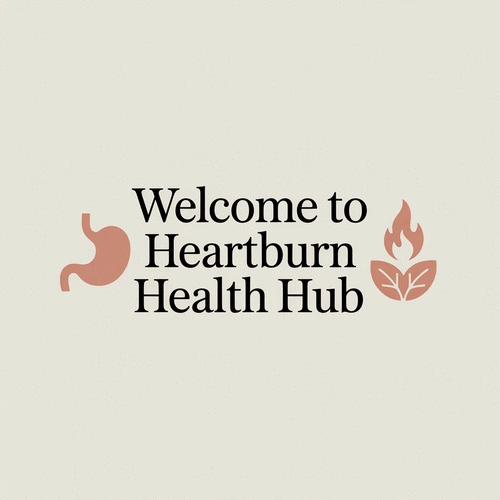Managing heartburn can feel overwhelming, but understanding its connection with weight and lifestyle choices can provide a clear path to relief. What if a few simple changes could not only alleviate your discomfort but also improve your overall well-being? Let’s uncover the essential insights that can empower you to take control of your digestive health.
What You Will Learn
- Heartburn is primarily caused by stomach acid reflux, often influenced by diet and weight management.
- Excess weight can increase the pressure on your abdomen, worsening heartburn symptoms and leading to GERD.
- Identifying and avoiding common food triggers, such as spicy or fatty foods, can help reduce heartburn episodes.
- Sustained weight loss and lifestyle changes, including regular exercise and mindful eating, are crucial for long-term heartburn relief.
- Staying hydrated is essential for digestive health, as it aids in digestion and helps prevent symptoms of heartburn.
The Link Between Weight Management and Heartburn
Understanding the vital connection between managing body weight and the frequency and intensity of heartburn episodes is crucial for long-term relief. This visual highlights key factors and actionable strategies.
Heartburn DynamicsImpact of Weight on GERD
- • Obesity & GERD Link
- • Modest Weight Gain Increases Frequency
- • Weight Loss Improves Symptoms
Symptom ManagementCommon Heartburn Triggers
- • Spicy Foods
- • Citrus & Tomato Products
- • Fried/Fatty Foods, Caffeine
Strategies for Sustained Relief
Weight ManagementPreventing Relapse
- • Set Realistic Goals
- • Track Food & Exercise
- • Regular Physical Activity
Holistic ApproachIntegrating Lifestyle Changes
- • Prioritize Sleep (7-9 hrs)
- • Limit Alcohol & Caffeine
- • Practice Stress Reduction
The Connection Between Weight Management and Heartburn Episodes
Heartburn can feel like an unwelcome guest after a satisfying meal, and for many, it can be a constant companion. But did you know weight management plays a significant role in how often and how intensely heartburn strikes? In this section, we’ll explore the connections between weight and heartburn, helping you understand why addressing your weight can be a vital step towards relief.

To kick things off, let’s delve into what heartburn really is. It often manifests as a burning sensation in the chest, sometimes accompanied by a bitter taste in the mouth. Understanding the causes and symptoms of heartburn is the first step in managing it. Common culprits include certain foods, beverages, and lifestyle habits, all of which can exacerbate this uncomfortable condition.
Understanding Heartburn: Causes and Symptoms
So, what actually causes heartburn? The primary reason is the reflux of stomach acid into the esophagus due to a faulty lower esophageal sphincter (LES). Several factors, including diet and weight, can impact this mechanism. Here are some common symptoms to watch for:
- Burning sensation in the chest
- Sour taste in the mouth
- Difficulty swallowing
- Chronic cough or hoarseness
By identifying these symptoms early on, you can take proactive steps to manage your heartburn. Whether it’s adjusting your diet or considering your weight, every small change counts!
The Impact of Weight on Gastroesophageal Reflux Disease (GERD)
Weight isn’t just a number on the scale; it can significantly affect your digestive health. In fact, excess weight can increase the pressure on your abdomen, pushing stomach contents back up into the esophagus and leading to GERD. It's essential to recognize this connection, as research published by PMC NCBI highlights the strong correlation between obesity and GERD. However, understanding how weight impacts your condition is just the beginning!
- Obesity is linked to a higher prevalence of GERD.
- Even modest weight gain can increase the frequency of heartburn episodes.
- Losing weight can lead to significant symptom improvement for many individuals.
Managing your weight effectively can relieve some of the pressure causing GERD symptoms. It's not just about looking good; it’s about feeling good too!
Common Food Triggers and Their Role in Heartburn Episodes
Now, let’s dive into the foods that can trigger heartburn. Many of us have our favorite dishes, but it’s crucial to recognize which ones might be causing discomfort. Here’s a list of typical food triggers:
- Spicy foods
- Citrus fruits and juices
- Tomato-based products
- Fried or fatty foods
- Caffeine and carbonated beverages
By keeping a food diary, you can pinpoint which foods exacerbate your heartburn. This self-awareness is a powerful tool in managing your symptoms and enhancing your overall health. Remember, at Heartburn Health Hub, we are here to help you navigate these challenges with practical dietary tips and management strategies!
Frequently Asked Questions About Heartburn and Weight Management
Interactive Poll: Your Experience with Heartburn
We want to know your thoughts! Have you noticed a connection between your weight and heartburn episodes? Share your experience below:
Long-Term Maintenance: Sustaining Weight Loss for Heartburn Relief
Maintaining weight loss can be a challenging journey, especially when it comes to managing heartburn episodes. At Heartburn Health Hub, we believe that understanding the connection between weight and digestive health is key to achieving lasting relief. To help you stay on track, I've gathered some practical strategies that will not only aid in weight management but also support your overall health!
Strategies for Preventing Relapse in Weight Management
Preventing weight regain is a crucial aspect of maintaining relief from heartburn. Here are some effective strategies I recommend to ensure your success:
- Set realistic goals that focus on gradual weight loss rather than quick fixes.
- Regularly track your food intake and exercise to stay accountable.
- Find a support system, whether it's friends, family, or a weight loss group.
- Incorporate regular physical activity into your routine—aim for at least 150 minutes of moderate exercise a week.
- Stay mindful of portion sizes, especially when dining out or enjoying snacks.

By consistently applying these strategies, you can reduce the likelihood of relapse and continue to enjoy the benefits of managing your heartburn effectively!
Integrating Lifestyle Changes for Lasting Effects
It's important to recognize that making long-term lifestyle changes can significantly impact your digestive health. I often emphasize the role of small, manageable shifts in daily habits. A recent study published in PMC NCBI highlights the benefits of lifestyle modifications in managing GERD. Here are some areas to focus on:
- Prioritize sleep—aim for 7-9 hours per night to support your overall well-being.
- Limit alcohol and caffeine intake, as these can exacerbate heartburn symptoms.
- Practice stress-reduction techniques such as yoga, meditation, or simple breathing exercises.
- Stay active in your community to maintain motivation and connection.
Adopting these lifestyle changes will not only help you maintain your weight loss but also improve your digestive health for the long run.
Hydration and Its Role in Digestive Health Maintenance
Don’t underestimate the power of staying hydrated! Drinking enough water plays a vital role in supporting your digestive system. Here’s why:
- Water aids in digestion by helping to break down food and absorb nutrients.
- Staying hydrated can prevent constipation, which can otherwise trigger heartburn symptoms.
- Proper hydration helps regulate appetite, making it easier to control portion sizes.
Make a habit of carrying a water bottle with you throughout the day. Your body will thank you for it!
Conclusion and Next Steps for Managing Heartburn Episodes
As you embark on your journey to manage heartburn through effective weight management, I encourage you to take action with confidence. Remember, every small step counts towards a healthier, more comfortable life!
Recap of Key Points
- Weight management significantly impacts the frequency and intensity of heartburn episodes.
- Identifying food triggers, such as spicy foods, citrus, and fried items, can help manage heartburn symptoms.
- Obesity is linked to a higher prevalence of GERD, and even modest weight loss can lead to symptom relief.
- Incorporating regular physical activity and tracking food intake can aid in maintaining weight.
- Adopting lifestyle changes, such as prioritizing sleep and managing stress, can improve digestive health.









